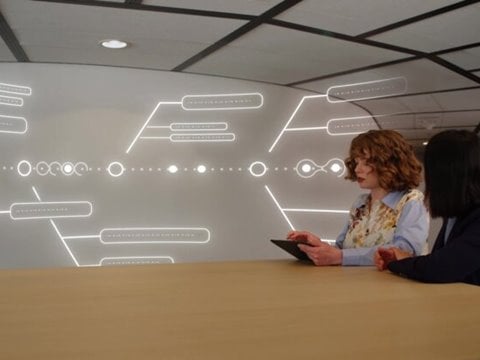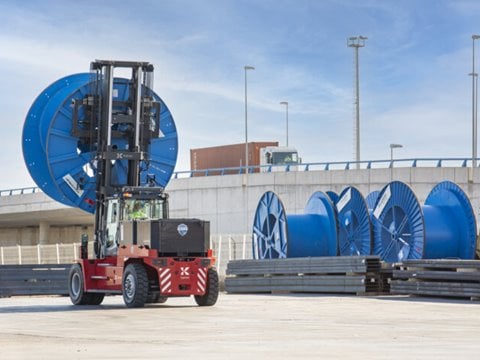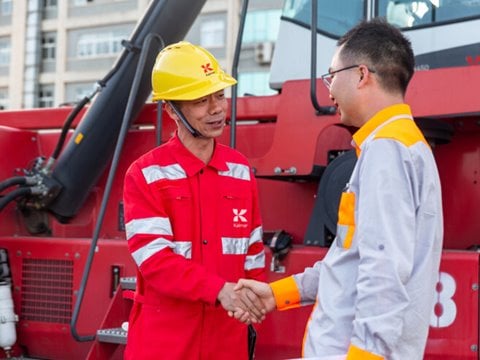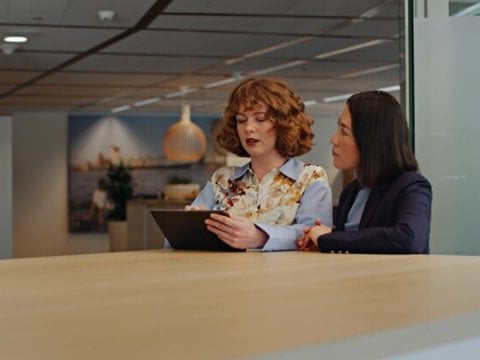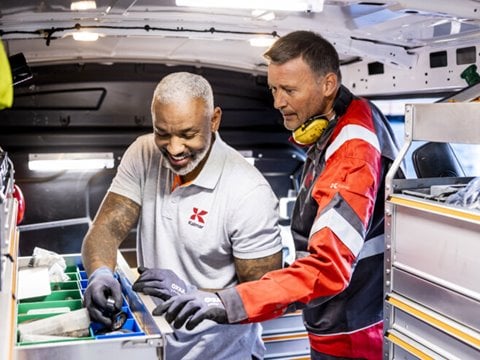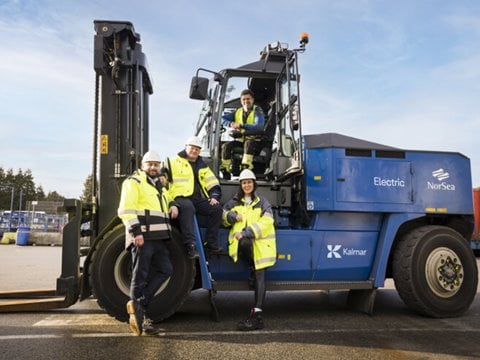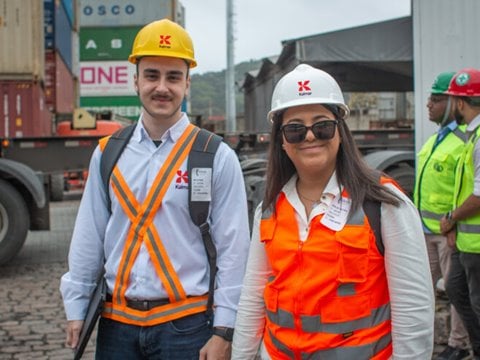
Does digitalisation automatically lead to better services?
Container handling equipment has reached the era of automation. On the services side, digitalisation is now the leading theme throughout the customer lifecycle. But does digitalisation automatically lead to better services?
Service businesses depend on smooth maintenance operations and swift parts deliveries. Digitalisation can improve the speed and quality of these functions, in addition to providing valuable real-world data from operations. For example, reporting that used to require minutes or hours on paper can be accomplished in seconds or done automatically.
Automated processes increase the consistency, scalability and timeliness of services, so maintenance experts can dedicate more of their time to high-value work and serving the customer.
Mobile tools are the latest addition to the maintenance toolbox. Maintenance planning and dispatching, standard work procedures, spare part catalogues, digital service manuals and a network of other experts are only a few clicks away. Digitalisation is likely to break the boundaries between these tools and services. User driven services will be built around the workers and their tasks, not around tool silos. Ultimately, these improvements always serve the same goal: providing better customer experience.
Data must be turned into insights
As digitalisation gains ground, we gather more and more data about our machines, their performance and their working environment. But this data is useless without analysis. Data must be turned into insights. In the digital era, the problem is no longer a lack of information; it’s having too much of it, or having information that is of insufficient quality.
Data is useless without analysis
Digitalisation is breaking down data barriers between vendors and clients. Equipment and service providers can share information on the machines, their maintenance and operational status and much more. Customers can become more open about their operation metrics and provide feedback that helps improve equipment and services. All this requires trust and a collaborative approach, and can – at best – lead to cooperation models in which the productivity of both parties is maximised.
It’s not all about digitalisation…
Designing a world-class service experience is not easy, as it encompasses everything from people, processes and information to concrete actions, business thinking and products. Digitalisation has transformed many consumer and B2B businesses, and will have a major impact on the container handling industry. Existing services will be streamlined with the help of digitalisation, but there will also be vast opportunities for innovation with suppliers that have an end-to-end service offering encompassing both equipment and maintenance.
New opportunities will appear based on data collected throughout the lifecycle of each product, and all information on container terminal operations will be at one’s fingertips for real-time decision-making.
However, automated processes are merely enablers for services in which we humans still play a key role, and digitalisation is not an end unto itself.
What kinds of services make people’s life easier? How do services create value for the customer’s business? These are the timeless questions that need to drive the development of new tools, technologies and applications – digital or not.
This article was co-authored by Jari Hämäläinen, Director Offering Development at Kalmar with Mikko Nurmi, M.Sc. (Information Management), Creative Lead at Leadin. The driving force behind Mikko’s work is to create user-friendly services and products for people to love. Mikko has worked with projects in various industries and consumer segments. Dozens of granted patents highlight the power of combining ideas and solutions from various fields.
Related articles
Further reading
Subscribe and receive updates in your email
Meld je aan voor onze publicaties